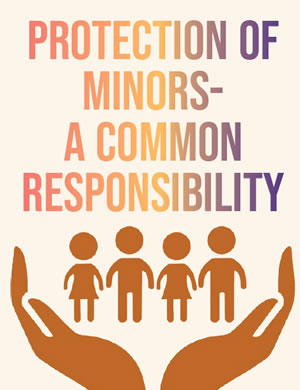State has the ultimate responsibility for the protection of minors. India was convinced of this responsibility of the State when the nation promulgated ‘The Constitution of India’. “Children are given opportunities and facilities to develop in a healthy manner and in conditions of freedom and dignity, and childhood and youth are protected against exploitation and against moral and material abandonment” (Government of India, 1949, sec. 39).
In the last two decades the Indian Government has set some milestones to safeguard the rights of children. In 2007 the National Commission for Protection of Child Rights (NCPCR) was established with a wide mandate and considerable powers, and eventually formed working bodies like telephone help lines (CHILDLINE, 1098) and Child Welfare Committees (CWC). The Integrated Child Protection Scheme (ICPS) was initiated in 2009 to strengthen institutional services for the protection of children at different levels (family, community, inter-sectors) and to create a database and knowledgebase for protection services. Then the POCSO Act (Prevention of Children from Sexual Offences Act) in 2012 differentiated between offences against an adult and a child in terms of their seriousness (Seth, 2013, pp. 295–296). It prescribes stringent punishment with a maximum term of rigorous imprisonment for life, and a fine. Following the principle of “best interest of the child”, this Act incorporates child-friendly procedures for reporting, recording evidence, investigation and speedy trial of offences, trial in camera without revealing the identity of the child, etc. (Moirangthem, Kumar, & Math, 2015, p. 1). The POCSO Act has created an increasing awareness of child protection among civil society groups. It has helped openly to address issues which were previously brushed under the carpet (Agnihotri & Das, 2015, para. 1). The Act has been criticized for lack of clarity in procedures of medical examination if the victim refuses but the family member or investigation officer insists. Some have questioned POCSO for criminalizing consensual sexual intercourse between two adolescents (Moirangthem et al., 2015, p. 2).
In the safeguarding mission, effective implementation and administration of laws and policies are equally important. “Merely enacting legislation will not be enough unless this is followed by strict enforcement of the law with accountability defined” (Kumar, Pathak, Kumar, Rastogi, & Rastogi, 2012, p. 175). In India there are administrative pitfalls for the persons involved in the investigation process, like policemen and doctors. Their improper and inadequately skilful performance can illegally help the criminals to escape and also cause secondary victimization of children. Regular monitoring by national and State commissions for the protection of child rights is also very important in this regard (Agnihotri & Das, 2015, paras 15–17). More training for doctors, lawyers, teachers and judicial officers is necessary for providing child-friendly interviews, structured assessment, etc. To avoid the possibility of re-victimization during investigation, the presence of a trained mental health professional is necessary for the victim and for his/her family (Moirangthem et al., 2015, p. 3).


